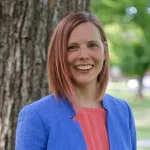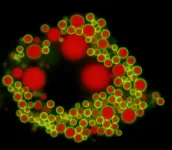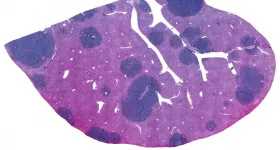(Press-News.org) Research by an international team of medical experts has found cancer patients could be up to four times more likely to die following cancer surgery in low to lower-middle income countries than in high-income countries. It also revealed lower-income countries are less likely to have post-operative care infrastructure and oncology services.
The global observational study, published in The Lancet, explored global variation in post-operative complications and deaths following surgery for three common cancers. It was conducted by researchers from the GlobalSurg Collaborative and NIHR Global Health Unit on Global Surgery - led by the University of Edinburgh, with analysis and support from the University of Southampton.
Between April 2018 and January 2019, researchers enrolled 15,958 patients from 428 hospitals in 82 countries undergoing surgery for breast, colorectal or gastric cancer. This included a mix of patients from high-income countries, upper middle-income countries and low/lower middle-income countries. 53 percent (8,406) of patients underwent surgery for breast cancer, 39 percent (6,215) for colorectal cancer, and 8 percent (1,337) for gastric cancer. The authors analysed how common death or major complications were within 30 days of surgery.
Deaths among gastric cancer patients were more than three times higher in low/lower middle-income countries (33 deaths among 326 patients, 3.72 odds of death) than high-income countries (27 deaths among 702 patients).
Patients with colorectal cancer in low/lower middle-income countries were also more than four times more likely to die (63 deaths among 905 patients, 4.59 odds of death), compared with those in high-income countries (94 deaths among 4,142 patients). Those in upper middle-income countries were two times as likely to die (47 deaths among 1,102 patients, 2.06 odds of death) as patients in high-income countries.
No difference in 30-day mortality was seen following breast cancer surgery.
Similar rates of complications following surgery were observed in patients across all income groups, however those in low/lower middle-income countries were six times more likely to die within 30 days of a major complication (96 deaths among 133 patients, 6.15 odds of death), compared with patients in high-income countries (121 deaths among 693 patients). Patients in upper middle-countries were almost four times as likely to die (58 deaths among 151 patients, 3.89 odds of death) as those in high-income countries.
Patients in upper middle-income and low/lower middle-income countries tended to present with more advanced disease compared with those in high-income countries, however researchers found that cancer stage alone explained little of the variation in mortality or post-operative complications.
Assessing hospital facilities and practices across the different income groups revealed that hospitals in upper middle-income and low/lower middle-income countries were less likely to have post-operative care infrastructure (such as designated post-operative recovery areas and consistently available critical care facilities) and cancer care pathways (such as oncology services).
Further analysis revealed that the absence of post-operative care infrastructure was associated with more deaths in low/lower middle-income countries (7 to 10 more deaths per 100 major complications) and upper middle-income countries (5 to 8 more deaths per 100 major complications).
Academic lead at the University of Southampton and member of GlobalSurg, Mr Malcolm West, commented: "It was a great privilege for me to contribute to this landmark study. Failure to rescue from death after post-operative complications is of global importance. As a colorectal surgeon, it is disconcerting to see that patients in LMIC present with more advanced cancers compared to high-income countries. Interestingly, advanced cancer rates alone did not fully explain the high death and complication rates we have seen.
"An urgent focus on improving global healthcare systems, especially in LMIC, to detect and intervene when complications occur would help save lives following cancer surgery."
Professor Ewen Harrison, of the University of Edinburgh, said: "Our study is the first to provide in-depth data globally on complications and deaths in patients within 30 days of cancer surgery. The association between having post-operative care and lower mortality rates following major complications indicates that improving care systems to detect and intervene when complications occur could help reduce deaths following cancer surgery."
The authors acknowledge some limitations to their study. Researchers only looked at early outcomes following surgery, but, in future, they will study longer-term outcomes and other cancers. Outcomes can be poorly captured and understood in settings with limited resources, which will have affected the team's findings on the effectiveness of surgery. Further detailed analysis is needed to provide more robust evidence regarding associations between patient outcomes and hospital facilities.
INFORMATION:
Notes to Editors
1) This paper is published in The Lancet (DOI: 10.1016/S0140-6736(21)00001-5) and can be viewed here: https://www.thelancet.com/journals/lancet/article/PIIS0140-6736(21)00001-5/fulltext#%20
2) Mr Malcolm West is a National Institute for Health Research (NIHR) funded Clinical Lecturer in Surgery at the University of Southampton and a Royal College of Surgeons England Senior Fellow in Advanced and Robotic colorectal cancer surgery at St. Mark's Hospital, London. He is also a member of the GlobalSurg collaborative: https://www.southampton.ac.uk/medicine/about/staff/mw5u13.page
3) The University of Southampton drives original thinking, turns knowledge into action and impact, and creates solutions to the world's challenges. We are among the top 100 institutions globally (QS World University Rankings 2021). Our academics are leaders in their fields, forging links with high-profile international businesses and organisations, and inspiring a 22,000-strong community of exceptional students, from over 135 countries worldwide. Through our high-quality education, the University helps students on a journey of discovery to realise their potential and join our global network of over 200,000 alumni. http://www.southampton.ac.uk
4) For more about the University of Edinburgh, visit: https://www.ed.ac.uk/
For further information contact:
Peter Franklin, Media Relations, University of Southampton. Tel: 07748321087 Email: p.franklin@southampton.ac.uk
http://www.southampton.ac.uk/news/contact-press-team.page
Follow us on twitter: http://twitter.com/unisouthampton
Like us on Facebook: http://www.facebook.com/unisouthampton
COLUMBUS, Ohio - Older minority cancer patients with poor social determinants of health are significantly more likely to experience negative surgical outcomes compared to white patients with similar risk factors, according to a new study published by researchers at The Ohio State University Comprehensive Cancer Center - Arthur G. James Cancer Hospital and Richard J. Solove Research Institute (OSUCCC - James).
A new retrospective analysis of more than 200,000 patients conducted by researchers with the OSUCCC - James suggests that minority patients living in high socially vulnerable neighborhoods had a 40% increased risk of a complication ...
CHAMPAIGN, Ill. -- Absent a widely available vaccine, mitigation measures such as stay-at-home mandates, lockdowns or shelter-in-place orders have been the major public health policies deployed by state governments to curb the spread of COVID-19.
But given the uncertain duration of such policies, questions have been raised about the potential negative mental health consequences of extended lockdowns with indefinite end dates. But according to new research co-written by a team of University of Illinois Urbana-Champaign experts who study the intersection of health care and public policy, the negative mental health effects of ...
ITHACA, N.Y. - Researchers from Cornell University and the National Park Service have pinpointed and confirmed the location of the remnants of a wooden fort in Alaska - the Tlingit people's last physical bulwark against Russian colonization forces in 1804 - by using geophysical imaging techniques and ground-penetrating radar.
The fort was the last physical barrier to fall before Russia's six-decade occupation of Alaska, which ended when the United States purchased Alaska in 1867 for $7 million.
The Tlingit built what they called Shiskinoow - the "sapling fort" - on a peninsula in modern-day Sitka, Alaska, ...
During epileptic seizures, a large number of nerve cells in the brain fire excessively and in synchrony. This hyperactivity may lead to uncontrolled shaking of the body and involve periods of loss of consciousness. While about two thirds of patients respond to anti-epileptic medication, the remainder is refractory to medical treatment and shows drug-resistance. These patients are in urgent need for new therapeutic strategies.
Together with colleagues in Japan, Prof. Dr. Christine Rose and her doctoral student Jan Meyer from the Institute of Neurobiology at HHU have performed a study to address the cellular mechanisms that promote the development of epilepsy. While up to now, most studies and anti-epileptic drugs targeted nerve cells (neurons), ...
Findings of a new study published by researchers from Trinity College Dublin and St James's Hospital outline the health impacts faced by older people while cocooning during the Covid-19 pandemic. The findings are published in the Quarterly Journal of Medicine here: https://bit.ly/3qGKJoI.
Cocooning involves staying at home and reducing face-to-face interaction with other people and is an important part of the response to the COVID-19 pandemic, with an overall aim to prevent transmission to vulnerable older people. However, concerns exist regarding the long-term adverse effects ...
A new study from Indiana University researchers finds that most high-school age youth are willing to wear masks to help prevent the spread of the COVID-19 virus, but that more education is needed on how to wear masks properly and on the importance of consistent commitment to public health guidelines.
The study, published today in the Journal of Adolescent Health looked at 1,152 youth's mask wearing and social distancing behaviors during five, in-person live-streamed high school graduations from one U.S. public school district in early July 2020. These broadcasts allowed the researchers to systematically document social-distancing behaviors throughout the ceremonies and mask-wearing as students crossed the graduation stage ...
Coconut oil has increasingly found its way into German kitchens in recent years, although its alleged health benefits are controversial. Scientists at the University of Bonn have now been able to show how it is metabolized in the liver. Their findings could also have implications for the treatment of certain diarrheal diseases. The results are published in the journal Molecular Metabolism.
Coconut oil differs from rapeseed or olive oil in the fatty acids it contains. Fatty acids consist of carbon atoms bonded together, usually 18 in number. In coconut oil, however, most of these chains are much shorter and contain only ...
Research from North Carolina State University shows that extreme weather events, such as hurricanes and increased precipitation, affect both the amount and the composition of picophytoplankton in the Neuse River Estuary. The work is a first step in determining how a wetter climate may affect the estuarine ecosystem.
Picophytoplankton are defined as any phytoplankton measuring less than three micrometers in size. Although well studied as part of the oceanic ecosystem and food web, picophytoplankton are understudied in estuarine systems, even though they occur in significant numbers within these environments.
"Picophytoplankton are important primary producers in aquatic ecosystems," says Ryan Paerl, assistant professor of ...
DALLAS - Jan. 25, 2021 - Small cell lung cancer (SCLC) cells are missing a surface protein that triggers an immune response, allowing them to hide from one of the body's key cancer defenses, a new study led by UT Southwestern researchers suggests. The findings, reported online today in Cancer Research, a journal of the American Association for Cancer Research, could lead to new treatments for SCLC, which has no effective therapies.
Despite decades of study, SCLC - a subset of lung cancer that makes up about 13 percent of lung cancer diagnoses - has a very poor prognosis, with only about 6 percent of patients surviving five years after ...
Massive earthquakes are, fortunately, rare events. But that scarcity of information blinds us in some ways to their risks, especially when it comes to determining the risk for a specific location or structure.
"We haven't observed most of the possible events that could cause large damage," explained Kevin Milner, a computer scientist and seismology researcher at the Southern California Earthquake Center (SCEC) at the University of Southern California. "Using Southern California as an example, we haven't had a truly big earthquake since 1857 -- that was the last time the southern San Andreas broke into a massive magnitude ...





